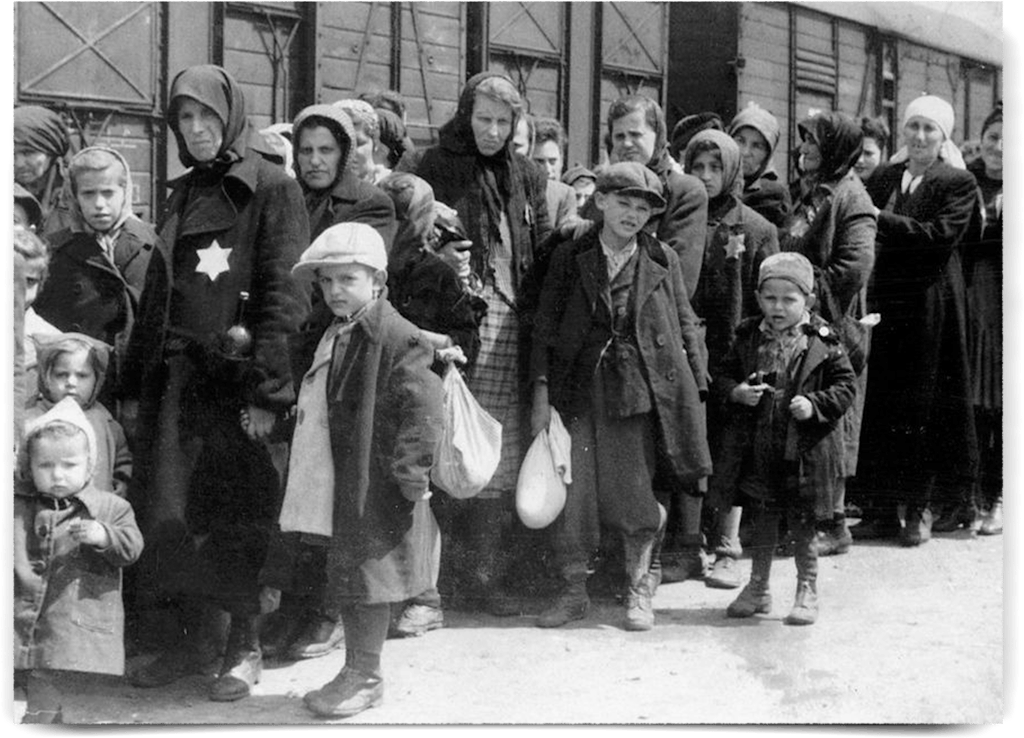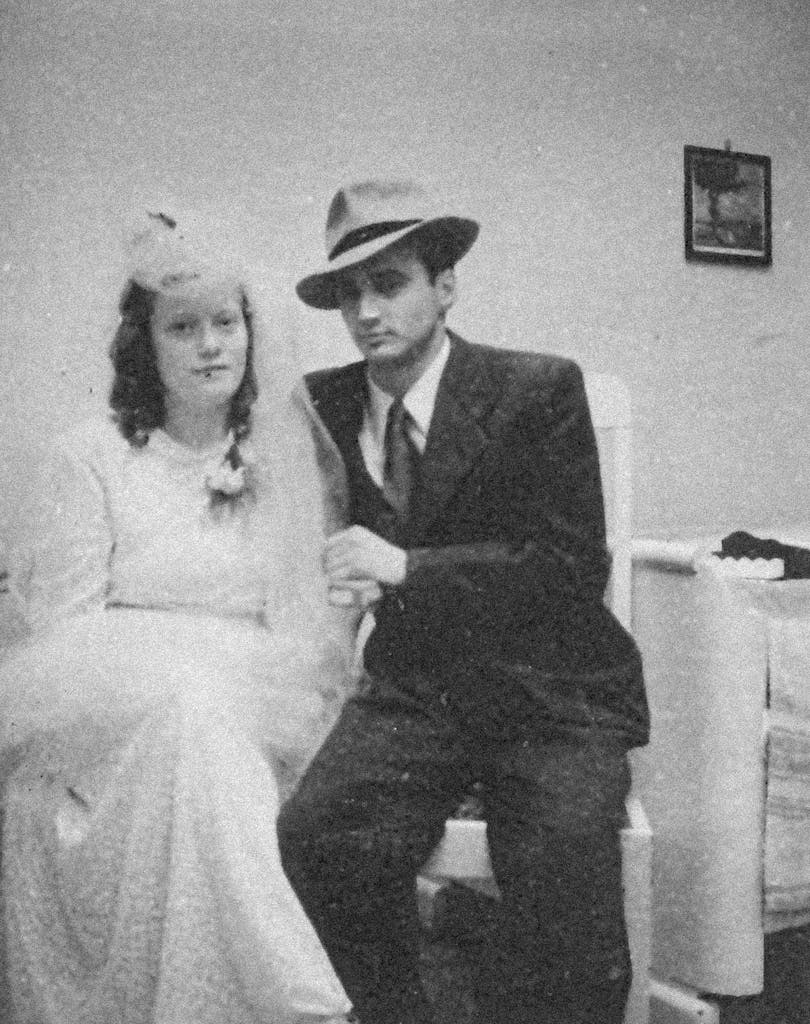Ibi Ginsburg
Ibi was born in Hungary into a strictly religious Jewish family. She survived Auschwitz-Birkenau and a death march. After the war, she met Val, a fellow survivor, and they fell in love.



Born in Pásztó in Hungary in 1924, Ibi’s family was strictly religious but lived happily alongside people of all different faiths in a town called Tokaj. Each religious community had their own school, so Ibi attended the local Jewish school.
On 19 March 1944, the Germans invaded Hungary and the Jewish population were immediately ordered to wear yellow stars. A few weeks later, Ibi’s family were moved into the Sátoraljaújhely ghetto in north-eastern Hungary, where after two weeks, people were told to prepare food for a three-day journey to Germany for work. Ibi described how her mother baked and cooked to create packed meals for the journey; everything was labelled, breakfast, lunch and dinner, for three days.
Ibi and her family were forced into a cattle wagon with only a bucket for sanitation. Some people managed to peer through the cracks as the train started its journey. From the names of the stations that they passed through, they soon realised they were not heading towards Germany.


“Everybody was full of foreboding, frightened. Where are they taking us? What is going to happen to us?”


After a three-day journey, the wagons arrived at Auschwitz-Birkenau in Nazi-occupied Poland. Ibi and her family were helped from the wagons by men in striped uniforms and had to wait in a queue with hundreds of other people who had been crammed onto the same train.
Ibi’s family were then separated. Ibi’s father was taken away first, then her mother and two youngest sisters were led away. Ibi and her 13-year-old sister, Judith, were sent in a different direction and told that they were going to work, and that they would see their family later. Ibi later learned that her mother and younger sisters had been immediately taken to the gas chambers.
Ibi remembered hearing the camp orchestra playing and the constant humming and scorching smell of the electrified fences. She also remembered the guard towers with the machine guns pointing down at the prisoners.

“And I thought to myself ‘But they can’t stop birds flying over’ and I was looking for birds, I remember the whole afternoon and there were no birds, birds didn’t fly over us. I thought to myself: ‘This must be Hell.’”


Ibi and Judith had their clothes and possessions taken away, all their hair shaved off, and were issued with camp uniforms. Ibi could not find her sister and called her name, only to find that Judith had been standing next to her, but she did not recognise her.
The sisters were in Auschwitz-Birkenau for about three months before being transferred to a subcamp of Dachau near Munich, called Kaufering. Initially, they helped build barracks for two to three weeks, and then were sent to Lager IV to build underground bunkers. Ibi could speak Yiddish and was therefore given special privileges. She helped in the kitchen with her sister.
They were then sent to a Russian prisoner of war camp and onward to St Ottilien near Munich, where Ibi cleaned the hospital blocks. As the Allies approached, they were forced on a four-to-five-day death march in circles around Munich. Those inmates who could not keep up were often shot or beaten to death by the guards.



“We were constantly hungry, humiliated, we worked, but we knew that the end was coming… We just hung on to life.”
After they were liberated by the Americans on 1 May 1945, Ibi returned to St Ottilien where she worked in the hospital administration. She met Val Ginsburg , a Lithuanian man, who was recuperating after surviving several concentration camps. Ibi and Judith also learned that their father was alive, also having survived Auschwitz and Mauthausen. He eventually remarried and he and his new wife emigrated to Israel with Judith.
In August 1946, Ibi and Val were married and quickly created a new life for themselves. Val’s cousin Margaret also survived the Holocaust and was living in West Yorkshire with her husband, Joseph. Val and lbi decided to join them and moved to England in October 1948, bought their first home in Brighouse, and became British citizens in 1955. They enjoyed working in West Yorkshire’s textile industry and raised their two daughters. They remained a devoted couple for over 60 years.




For many years, Ibi and Val never talked about their experiences, not even to their family. In the 1980s, they decided that they owed it to the victims of Nazi persecution and the Holocaust to tell their stories. They visited many schools to help inspire tolerance among young people and to raise awareness about the privilege of living in a stable democracy. In 2005, the couple were presented to Queen Elizabeth II on the 60th anniversary of the liberation of Auschwitz.
Sadly, Ibi passed away on 19 February 2010 and is greatly missed by all who knew her.


Can you help us?
Without the work of charities like ours, stories like this one will be lost and forgotten. Please donate generously to ensure that this story can a force for good in the modern world.
- £
